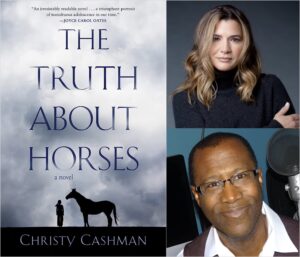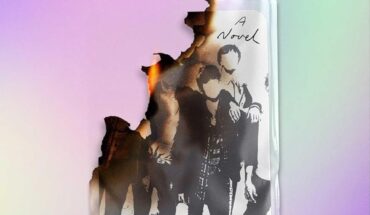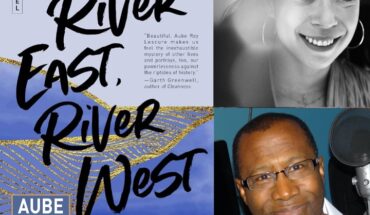 The Truth About Horses, Christy Cashman’s debut novel, is a wonderful mix of psychological and equestrian drama, with enough magical realism to keep you off balance. Fourteen-year-old Reese’s dream of winning a big race is shattered when her horse, Trusted Treasure, falls at the last jump. While still reeling, her family suffers a second trauma that results in closing their ranch, Trusted Treasure being sold, and irreparable damage to their relationships. When a reclusive horse trainer purchases the ranch and hires her, Reese learns some dreams are worth fighting for, as her hallucinations and home life gallop towards disaster.
The Truth About Horses, Christy Cashman’s debut novel, is a wonderful mix of psychological and equestrian drama, with enough magical realism to keep you off balance. Fourteen-year-old Reese’s dream of winning a big race is shattered when her horse, Trusted Treasure, falls at the last jump. While still reeling, her family suffers a second trauma that results in closing their ranch, Trusted Treasure being sold, and irreparable damage to their relationships. When a reclusive horse trainer purchases the ranch and hires her, Reese learns some dreams are worth fighting for, as her hallucinations and home life gallop towards disaster.
What about horses continues to capture the imagination?
It’s their mystery. You can’t completely understand them. They’re a thousand-pound animal and whether they let you ride is their choice. They allow you on their back to be with them or not.
You’ve taken several Grubstreet writing classes, including the Novel Generator with Annie Hartnett where you and I met. How have those classes informed your writing?
They were extremely helpful. When I first sat in Eson Kim’s Creative Nonfiction, her first exercise was for everyone to free write for 10 minutes without thinking. I felt I was exactly where I was supposed to be, doing what I was supposed to be doing. It’s a gift in life to have that feeling.
I love your untrustworthy protagonist. In some ways, she reminded me of Natalie Portman’s Nina in the movie, Black Swan. The element of suspect magical realism is surprising and refreshing.
Doesn’t it make you feel like just writing a book? You start with an idea and if you stick with it, it becomes the kernel of a vision. You see something in the distance no one else sees, but you want to get there and see it more clearly. The only way to do that is write into the clarity and out of the fogginess. That’s how writing was for me.
I reviewed both your print and audio books. What made you decide to read your audiobook?
The story is still fresh with me in a way that having someone else’s voice telling my story would have felt weird, I guess. But I didn’t realize how hard it would be. Why did I write these tongue twister sentences at times? I’d be fatigued after a couple of hours. I didn’t realize how crackly or breathy I sounded sometimes—microphones pick up everything! I even remember stomach noises when I was hungry and having to stop and eat.
You’ve ridden horses since the age of three. Do you think working with horses has made you a better person?
Definitely! Not long ago I told an interviewer that my horse when I was nine raised me as much as I raised him. Everything we went through, we did together. It’s a big problem if you’re on a horse and he spooks. I had to learn to be patient and teach him not to fear everything will jump out at him like the Boogie monster. Since your actions with a horse are more important that your voice, I had to modulate my energy, even in scary situations.
There are times in your novel where Reese can’t make the jump, like Simone Biles, the gymnast, who until recently gave up gymnastics because of “the twisties”. Does that ever happen in tournaments?
It happens to riders, athletes, everybody. You go through slumps and self-doubt sinks in, like a baseball player who, for the life of him, can’t seem to hit a ball. Then suddenly, he hits a home run and gets on a hot streak. So much of what I had to do was get out of my own way. Do you feel that way about your writing? Like, just get out of the constant, anxiety-ridden rat race running in your mind.
Is there a process to your writing?
Toni Morrison and Stephen King believed in writing rituals. Make your writing a ceremony. I light a candle, pray, meditate, and sometimes read the Bible to get out of myself. I try to be a conduit to the creative process. I felt moments where something entered my head that didn’t come from any experience I’d had, but it was there, and I liked it.
What was your publication journey?
I had a very big agent pursuing me during my last couple of years in revision. That boosted my confidence. The weird thing is he eventually decided to pass, so I went back to square one. I sent my novel to the hybrid publisher, SparkPress, a YA branch of She Writes Press, and they wanted to publish it immediately. Rather than wait months to sign with an agent and more time for rewrites I said, You know what? It’s my first novel. I don’t need an agent. I haven’t done anything conventionally my whole life. Why start now?
Tell me about your two-year-old organization, YouthINK.
YouthINK is a mentorship program for kids 13-18 interested in the creative arts. I wish I’d had mentors early on. YouthINK started in Ireland because we have the space and I was able to engage two directors, Mary O’Connor and Pádraig Dunne, who have their fingers on the pulse of area youth. We just held our first Boston event, partnering with Epiphany School and Commonwealth Shakespeare Company.
Any advice for aspiring novelists?
The same thing people told me: sit, sit down, just write. Don’t care so much about what comes out, because usually what comes out at first, you’re not going to use anyway. A writing career is about writing. If you can, write every day. I don’t always, but I really try to when I’m in the zone, as opposed to hunting and gathering mode. And stop being a perfectionist! Every author writes a lot of junk before getting to anything usable. In reality, it’ll be a finished product when you decide—no one else.
Christy Cashman is a mother, entrepreneur, actress, and author. She’s appeared in more than 20 movies, including Ted 2, American Hustle, The Women, Joy, and others. In addition to The Truth About Horses, Christy has published two children’s books, The Not-So-Average Monkey of Kilkea Castle and Petri’s Next Things. She is currently working on her second novel, Beulah. Find out more at www.christycashman.com, on Facebook, Instagram, or Twitter.



